- No products in the cart.
Deionized vs. Distilled Water: What's the Difference?
Feb
04
2023
Deionized and distilled water are two types of water that are used for different needs. While both processes remove impurities, they do so in different ways and to differing degrees, with deionization being the more thoroughly purified version of the two. Learn about the differences and which one best suits your needs here!
What is Deionized Water?
Deionized water, also known as demineralized water, is put through a process called ion exchange. This process removes nearly all ions, except for some trace minerals not present in tap water. Without these ions present, deionized water has excellent purity characteristics and is often used in laboratories or pharmaceutical applications due to its sterility and lack of contamination.
Aside from its use in scientific experiments, deionized water is also commonly used for industrial cleaning. Due to its purity, it doesn’t leave behind any soapy residue or scale build-up and is beneficial for processes that require a high degree of cleanliness. Deionized water can be used to wash parts and equipment and is often used in the food industry due to its non-toxicity. Additionally, because it does not contain hard minerals, it will not cause corrosion of metals like copper pipes.
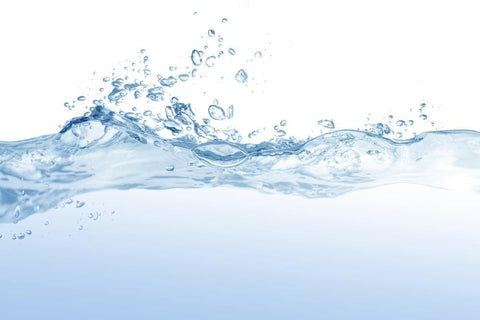
What is Distilled Water?
Distilled water is produced by condensing steam from boiled water and then collecting the condensation. This process can remove certain bacteria and substances, though it does not typically remove dissolved solids or minerals. Since distilled water has a neutral pH, it’s called “purified” water but not necessarily pure. While distilled water may be filtered to improve taste, it is most pure in its natural state, which makes it safe for consumption and suitable for general uses such as car batteries and irons.
Distilled water is often referred to as deionized water, although the terms are distinct. Deionized water is created through a more in-depth process of filtering and distillation that includes resin and carbon filters to remove, or “deionize”, ions from the other contaminants in the water. The end result of this process is considered significantly purer than ordinary distilled water, with very few dissolved solids. This makes it well suited for industrial use such as cooling systems and medical equipment such as diagnostic machines.
Comparison of Properties Between Deionized and Distilled Water
Deionized water and distilled water are both considered “purified” and safe for consumption, though deionized takes it a step further. By being run through a deionization process, the water is stripped of its ions which can contain minerals and salts. This means that the remaining water is much purer than that of distilled water as all trace elements have been removed. Typically, this type of water is used in industrial and scientific applications or for extended-use applications such as steam irons or leather conditioning.
How Are Deionized and Distilled Waters Used?
Deionized water is used in a range of industrial, medical, and scientific applications as it contains little to no contaminants. In contrast, distilled water is typically used for drinking purposes as it's considered to be safe for consumption even though its mineral content might not be pure enough for some applications. Both are found in many household items like steam irons, humidifiers, and solder pots and can also be used for aquariums and tempering hydroponic plants.
Deionized water is created by either passing water through ion-exchanging resins or other media, or exposing it to electric current. This process removes minerals and ions that contribute to conductivity in regular tap water. However, some of the available methods are not as effective at removing certain compounds like fluoride, nitrate, and chloride; therefore, advanced filtration systems are needed to make sure the water is safe for drinking. Distilled water on the other hand, is usually boiled and turned into vapor (steam). Once cooled down, impurities have been separated from the steam which results in pure H2O — not de-mineralized.
The Right Solution for You
Ultimately, it's important to determine which type of water best suits your needs. Whereas deionized water is ideal for medical device manufacturing and industrial purposes, distilled water is preferable in situations where pure drinking water is required. However, both can be used for many of the same applications. If you're ever unsure about the suitability of either for a specific purpose, it's best to consult with an expert or check with the product guidelines.
Where to buy Lab Grade Deionized Water?
Lab Pro offers a large selection of lab grade waters. For over 40 years, Lab Pro Inc. has been committed to delivering the highest quality hand tools, chemicals, lab equipment, distance learning kits, lab supplies, and cleanroom PPE apparel to medical device companies and laboratories worldwide. To learn more, visit the biggest Lab Supply showroom in California, or contact us online or at 888-452-2776.







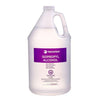

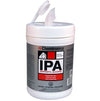
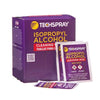

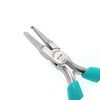
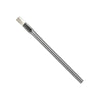
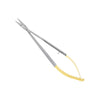





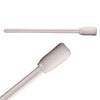
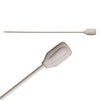
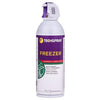
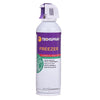
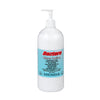


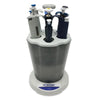




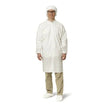


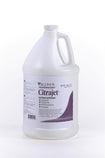
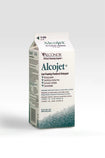
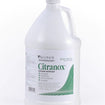
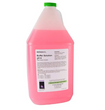






I have always used distilled water for synus irtigation. Today I requested “distilled” water in the pharmacy for my NailMed daily routine. They gave me “.deiodized” water. Is the latter safe for nasal irrigation instead of distilled water??